BACKGROUNDER
Guatemala’s electoral authority blocks the suspension of President-elect Arévalo’s political partyPeople march to reject legal actions taken by the Attorney General’s office against the Seed Movement party and President-Elect Bernardo Arévalo in Guatemala City, Saturday, Sept. 2, 2023. Arévalo won the runoff against Sandra Torres by more than 20 points. (AP Photo/Moises Castillo)People march to reject legal actions taken by the Attorney General’s office against the Seed Movement party and President-Elect Bernardo Arévalo, in Guatemala City, Saturday, Sept. 2, 2023. Guatemala’s Congress has declared the Seed Movement’s seven lawmakers — one of whom is Arévalo — independents, which bars them from holding leadership positions.
BY SONIA PÉREZ D.
September 3, 2023
GUATEMALA CITY (AP) — Guatemala’s top electoral authority said Sunday it blocked the suspension of President-elect Bernardo Arévalo’s Seed Movement, at least temporarily giving the party back its legal status and cutting off an attempt by opposing political forces to weaken him.
The decision by the Supreme Electoral Tribunal came days after the electoral registry suspended the party on a judge’s order. The Attorney General’s office is investigating whether there was wrongdoing in the gathering of required signatures for the party’s formation years earlier.
The tribunal said the suspension could not stand because it did not come from an electoral body. Its decision holds until the official end of the electoral period Oct. 31, because Guatemala’s electoral law does not allow the suspension of a party during the electoral period.
The Seed Movement had also appealed the suspension through the normal court system, but so far without result. It is expected that come Nov. 1, the party could be suspended again.
Guatemala’s Congress refuses to recognize president-elect’s party
Guatemala’s president-elect faces legal challenges that seek to weaken him. Here’s what’s happening
The c ongressional leadership had already used the suspension of the Seed Movement last week to make its seven lawmakers, including Arévalo, independents, which bars them from leading legislative committees or holding other positions of leadership in the Congress.
Arévalo, a progressive lawmaker and academic, shocked Guatemala by making it into an Aug. 20 presidential runoff in which he beat former first lady Sandra Torres by more than 20 points. Ever since Arévalo achieved a surprise second-place finish among a crowded field in the first round of voting in June, his party has come under attack.
The Supreme Electoral Tribunal recognized Arévalo as the winner and outgoing President Alejandro Giammattei has said he will begin the transition, but the Attorney General’s Office has been aggressively pursuing the Seed Movement on various fronts.
On Friday, the head of the Organization of American States’ electoral observation mission said the efforts appear aimed at keeping Arévalo from taking office in January.
Observers inside and outside Guatemala have warned in recent years that the country’s democracy is in decline.
President Jimmy Morales, Giammattei’s predecessor, expelled the United Nations-backed anti-corruption mission that had made impressive strides in dismantling networks of corruption that divert public monies to their pockets and had allowed drug traffickers to take ever-growing control of the country.
Giammattei weaponized the justice system, turning it against the same prosecutors and judges who had led that anti-corruption fight. His Attorney General and her anti-corruption prosecutor have both been sanctioned by the United States government as undemocratic actors allegedly involved in corruption.
Polls showed Arévalo’s party with under 3% support heading into the first round of voting. But his message of taking up once again the corruption fight resonated with a frustrated population facing an array of candidates mostly promising more of the same.
His support expanded exponentially as he headed into the runoff last month. He ran a hopeful outsider’s campaign against Torres, who was making her third presidential bid and couldn’t shake the status quo reputation she picked up by helping to advance Giammattei’s legislative agenda.
Voters spoke loudly, trying to give Arévalo an undisputable margin of victory. But the entrenched political and economic forces that stand much to lose under an Arévalo presidency have not rolled over. And as the president-elect said Friday, there are still four months before he takes office “during which these political mafias will try to consummate the coup d’etat.”
__
AP writer Christopher Sherman in Mexico City contributed to this report
People march against legal actions taken by the Attorney General’s office against the Seed Movement party and President-Elect Bernardo Arévalo, in Guatemala City, Saturday, Sept. 2, 2023. Guatemala’s Congress has declared the Seed Movement’s seven lawmakers — one of whom is Arévalo — independents, which bars them from holding leadership positions.
A banner with a portrait of the Attorney General Consuelo Porras hangs on a crowd control barrier during a protest against her actions against the Seed Movement party and President-Elect Bernardo Arévalo, at the Constitutional Square in Guatemala City, Saturday, Sept. 2, 2023. Guatemala’s Congress has declared the Seed Movement’s seven lawmakers — one of whom is Arévalo — independents, which bars them from holding leadership positions
.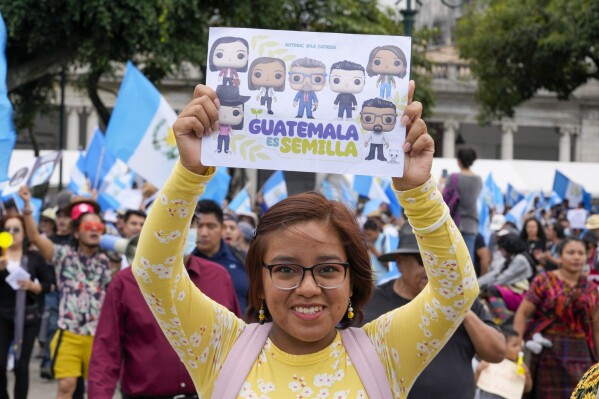
A woman shows support for the Seed Movement party during a march against legal actions taken by the Attorney General’s office against President-Elect Bernardo Arévalo, at the Constitutional Square in Guatemala City, Saturday, Sept. 2, 2023. Guatemala’s Congress has declared the Seed Movement’s seven lawmakers — one of whom is Arévalo — independents, which bars them from holding leadership positions.
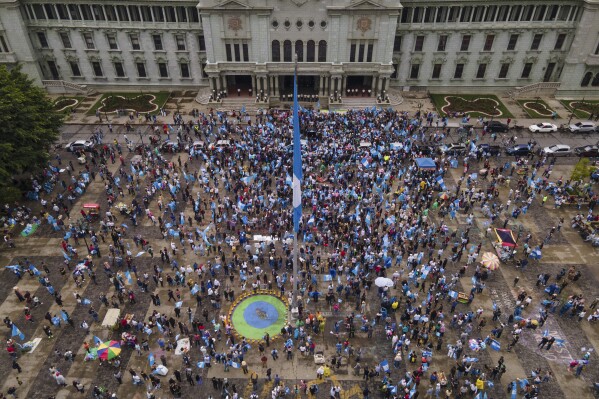
People gather against the legal actions taken by the Attorney General’s office against the Seed Movement party and President-Elect Bernardo Arévalo, at the Constitutional Square in Guatemala City, Saturday, Sept. 2, 2023. Guatemala’s Congress has declared the Seed Movement’s seven lawmakers — one of whom is Arévalo — independents, which bars them from holding leadership positions.
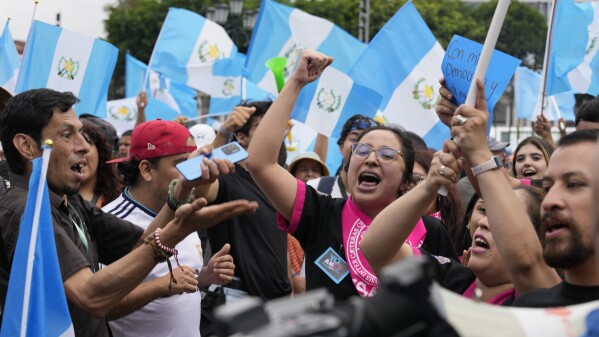
People march against legal actions taken by the Attorney General’s office against the Seed Movement party and President-Elect Bernardo Arévalo, in Guatemala City, Saturday, Sept. 2, 2023. Guatemala’s Congress has declared the Seed Movement’s seven lawmakers — one of whom is Arévalo — independents, which bars them from holding leadership positions.
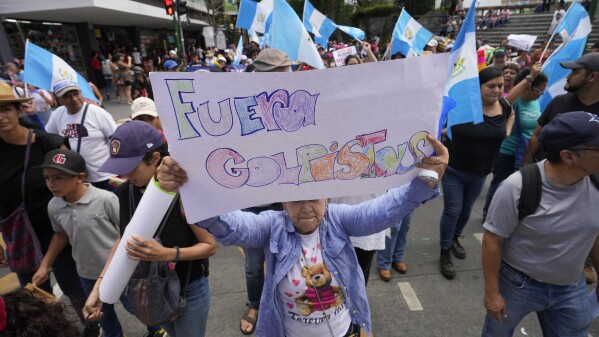
A woman holds up a sign with a message that reads in Spanish: “Get out coup plotters,” during a march against legal actions taken by the Attorney General’s office against the Seed Movement party and President-Elect Bernardo Arévalo in Guatemala City, Saturday, Sept. 2, 2023. Guatemala’s Congress has declared the Seed Movement’s seven lawmakers — one of whom is Arévalo — independents, which bars them from holding leadership positions.
A woman shows support for the Seed Movement party during a march against legal actions taken by the Attorney General’s office against President-Elect Bernardo Arévalo, at the Constitutional Square in Guatemala City, Saturday, Sept. 2, 2023. Guatemala’s Congress has declared the Seed Movement’s seven lawmakers — one of whom is Arévalo — independents, which bars them from holding leadership positions.
People gather against the legal actions taken by the Attorney General’s office against the Seed Movement party and President-Elect Bernardo Arévalo, at the Constitutional Square in Guatemala City, Saturday, Sept. 2, 2023. Guatemala’s Congress has declared the Seed Movement’s seven lawmakers — one of whom is Arévalo — independents, which bars them from holding leadership positions.
People march against legal actions taken by the Attorney General’s office against the Seed Movement party and President-Elect Bernardo Arévalo, in Guatemala City, Saturday, Sept. 2, 2023. Guatemala’s Congress has declared the Seed Movement’s seven lawmakers — one of whom is Arévalo — independents, which bars them from holding leadership positions.
A woman holds up a sign with a message that reads in Spanish: “Get out coup plotters,” during a march against legal actions taken by the Attorney General’s office against the Seed Movement party and President-Elect Bernardo Arévalo in Guatemala City, Saturday, Sept. 2, 2023. Guatemala’s Congress has declared the Seed Movement’s seven lawmakers — one of whom is Arévalo — independents, which bars them from holding leadership positions.
OAS says legal actions in Guatemala appear aimed at keeping president-elect from taking power
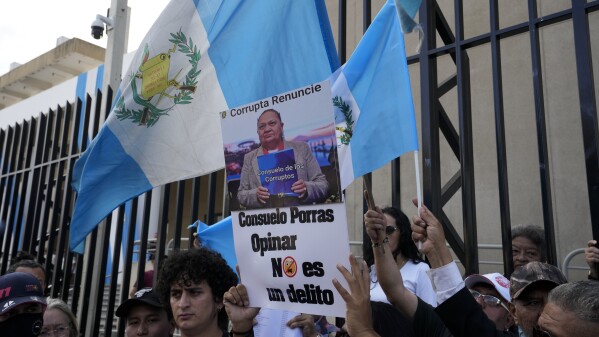
Protesters show documents with citizen signatures demanding the resignation of Attorney General Consuelo Porras, in Guatemala City, Friday, Sept. 1, 2023. President-elect Bernardo Arévalo named Porras, anti-corruption prosecutor Rafael Curruchiche and the judge who ordered his party’s suspension as among those working to keep him from taking office.
BY SONIA PÉREZ D.
September 1, 2023
GUATEMALA CITY (AP) — The head of the Organization of American States’ election observation mission said Friday that the actions taken by Guatemala’s justice system against the Seed Movement party of President-elect Bernardo Arévalo appear to be aimed at preventing him from taking power.
Arévalo echoed that concern at his own news conference Friday in which he called on Guatemalans to resist what he characterized as an attempt to overthrow his government before it takes office.
The president-elect also received a call from U.S. Vice President Kamala Harris congratulating him on his victory and pledging to work closely with his government, as the Biden administration works to make the transition to Arévalo appear inevitable.
Eladio Loizaga of the Organization of American States told a special meeting of the permanent council the Aug. 20 election vote was a peaceful and transparent election that left no doubt as to the will of the people.
OTHER NEWS
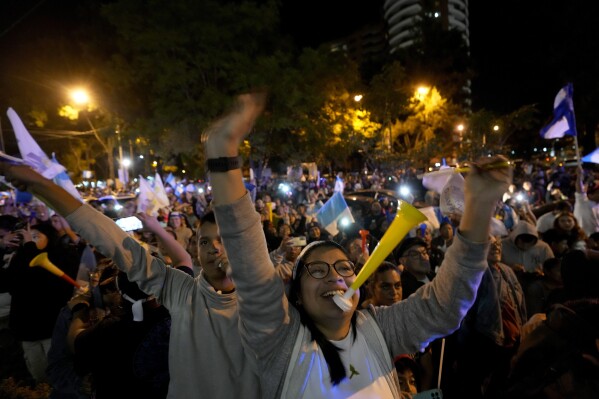
Candidate who lost Guatemala’s presidential election files complaint alleging voter fraud
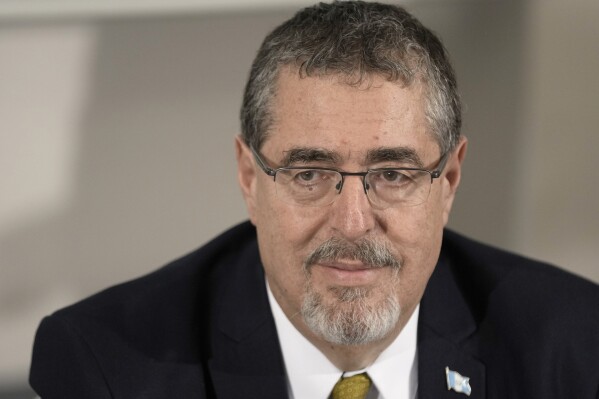
OAS human rights body demands protection for apparent Guatemalan election winner amid plot rumors
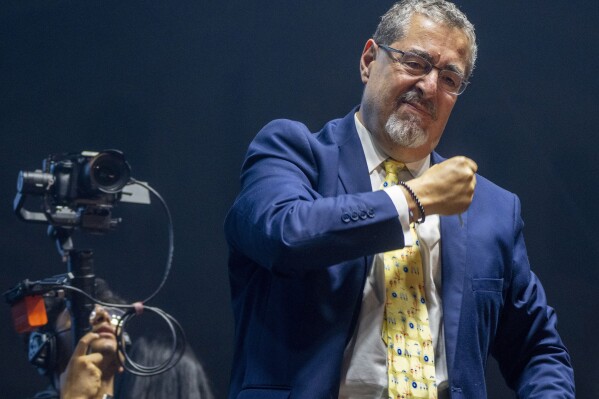
Guatemala court permanently blocks suspension of Seed Movement party ahead of Sunday’s election
But in summarizing the various legal actions taken by the Attorney General’s Office against the Seed Movement, Loizaga said there appears to be clear political intent.
“Given the documented conditions, it is impossible that the Electoral Observation Mission would arrive at any other conclusion than that in this very specific case the mechanisms and tools of Guatemalan justice are being used politically” against the Seed Movement, he said, adding that the behavior of Guatemalan authorities has been “selective, disproportionate and clearly tailored to the political moment.”
Loizaga said that preventing Arévalo from taking power in January would break the constitutional order and go against the will of the people.
At the request of prosecutors, a judge suspended the Seed Movement’s legal status for alleged wrongdoing in the party’s collection of the signatures needed to register years earlier. This week, Guatemala’s Congress declared the Seed Movement’s seven lawmakers — one of whom is Arévalo — independents, which bars them from holding leadership positions.
Arévalo won the runoff against former first lady Sandra Torres by more than 20 points. She has not conceded and her party has alleged fraud, something Loizaga said was not supported by evidence.
Arévalo named Attorney General Consuelo Porras, anti-corruption prosecutor Rafael Curruchiche and the judge who ordered his party’s suspension as among those working to keep him from taking office.
“We are seeing a coup d’etat in motion in which the justice apparatus is used to violate justice,” Arévalo said.
Ahead of next January’s swearing in, “We alert the Guatemalan people that there are still four months, during which these political mafias will try to consummate the coup d’etat,” he said. “The people’s resistance is legitimate,” he added.
Guatemala’s Foreign Minister Mario Búcaro, who was present at the OAS meeting, downplayed the notion of any turmoil in the country’s politics, saying “there is no electoral crisis, and there is peace.”
Later Friday, the White House announced that U.S. Vice President Kamala Harris spoke with Arévalo. She congratulated him on his victory and “discussed our shared interests in combatting corruption, supporting civilian security, and increasing economic opportunity,” according to a summary of the call provided by the White House.
Harris had previously identified corruption as one of the factors driving emigration from Guatemala. The call was the latest show of support by the U.S. government toward Arévalo since his election.
The Biden administration has been at odds with the government of outgoing Guatemala President Alejandro Giammattei in recent years, sanctioning his attorney general as an undemocratic actor and criticizing a deterioration in the country’s democratic institutions, even while trying to enlist its help in controlling migration flows.
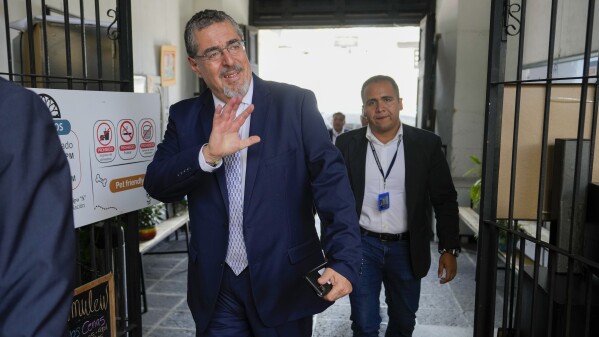
President-elect Bernardo Arévalo arrives to a press conference in Guatemala City, Friday, Sept. 1, 2023.
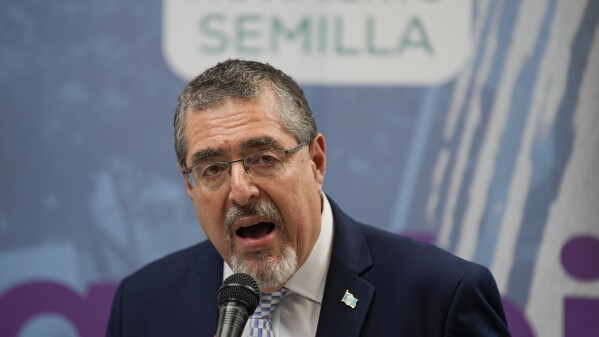
President-elect Bernardo Arévalo gives a press conference in Guatemala City, Friday, Sept. 1, 2023.
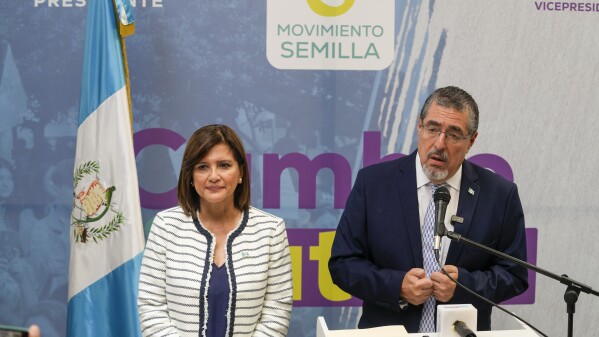
President-elect Bernardo Arévalo, right, and Vice President Karin Herrera give a press conference in Guatemala City, Friday, Sept. 1, 2023.
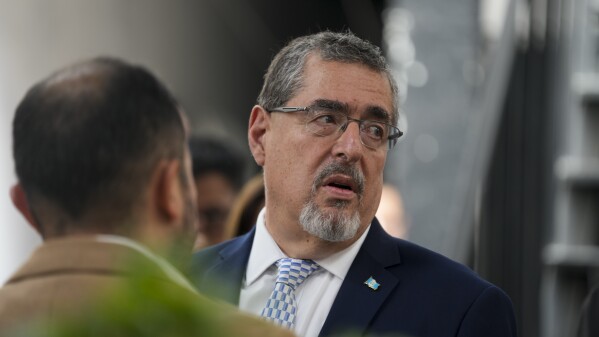
President-elect Bernardo Arévalo talks with his staff after giving a press conference in Guatemala City, Friday, Sept. 1, 2023.
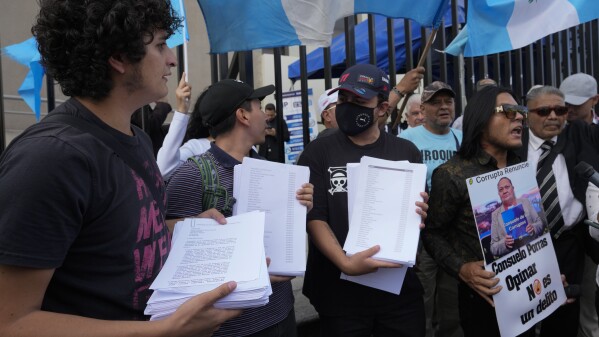
Protesters show documents with citizen signatures demanding the resignation of Attorney General Consuelo Porras, in Guatemala City, Friday, Sept. 1, 2023. President-elect Bernardo Arévalo named Porras, anti-corruption prosecutor Rafael Curruchiche and the judge who ordered his party’s suspension as among those working to keep him from taking office.
Protesters show documents with citizen signatures demanding the resignation of Attorney General Consuelo Porras, in Guatemala City, Friday, Sept. 1, 2023. President-elect Bernardo Arévalo named Porras, anti-corruption prosecutor Rafael Curruchiche and the judge who ordered his party’s suspension as among those working to keep him from taking office.
BY SONIA PÉREZ D.
September 1, 2023
GUATEMALA CITY (AP) — The head of the Organization of American States’ election observation mission said Friday that the actions taken by Guatemala’s justice system against the Seed Movement party of President-elect Bernardo Arévalo appear to be aimed at preventing him from taking power.
Arévalo echoed that concern at his own news conference Friday in which he called on Guatemalans to resist what he characterized as an attempt to overthrow his government before it takes office.
The president-elect also received a call from U.S. Vice President Kamala Harris congratulating him on his victory and pledging to work closely with his government, as the Biden administration works to make the transition to Arévalo appear inevitable.
Eladio Loizaga of the Organization of American States told a special meeting of the permanent council the Aug. 20 election vote was a peaceful and transparent election that left no doubt as to the will of the people.
OTHER NEWS
Candidate who lost Guatemala’s presidential election files complaint alleging voter fraud
OAS human rights body demands protection for apparent Guatemalan election winner amid plot rumors
Guatemala court permanently blocks suspension of Seed Movement party ahead of Sunday’s election
But in summarizing the various legal actions taken by the Attorney General’s Office against the Seed Movement, Loizaga said there appears to be clear political intent.
“Given the documented conditions, it is impossible that the Electoral Observation Mission would arrive at any other conclusion than that in this very specific case the mechanisms and tools of Guatemalan justice are being used politically” against the Seed Movement, he said, adding that the behavior of Guatemalan authorities has been “selective, disproportionate and clearly tailored to the political moment.”
Loizaga said that preventing Arévalo from taking power in January would break the constitutional order and go against the will of the people.
At the request of prosecutors, a judge suspended the Seed Movement’s legal status for alleged wrongdoing in the party’s collection of the signatures needed to register years earlier. This week, Guatemala’s Congress declared the Seed Movement’s seven lawmakers — one of whom is Arévalo — independents, which bars them from holding leadership positions.
Arévalo won the runoff against former first lady Sandra Torres by more than 20 points. She has not conceded and her party has alleged fraud, something Loizaga said was not supported by evidence.
Arévalo named Attorney General Consuelo Porras, anti-corruption prosecutor Rafael Curruchiche and the judge who ordered his party’s suspension as among those working to keep him from taking office.
“We are seeing a coup d’etat in motion in which the justice apparatus is used to violate justice,” Arévalo said.
Ahead of next January’s swearing in, “We alert the Guatemalan people that there are still four months, during which these political mafias will try to consummate the coup d’etat,” he said. “The people’s resistance is legitimate,” he added.
Guatemala’s Foreign Minister Mario Búcaro, who was present at the OAS meeting, downplayed the notion of any turmoil in the country’s politics, saying “there is no electoral crisis, and there is peace.”
Later Friday, the White House announced that U.S. Vice President Kamala Harris spoke with Arévalo. She congratulated him on his victory and “discussed our shared interests in combatting corruption, supporting civilian security, and increasing economic opportunity,” according to a summary of the call provided by the White House.
Harris had previously identified corruption as one of the factors driving emigration from Guatemala. The call was the latest show of support by the U.S. government toward Arévalo since his election.
The Biden administration has been at odds with the government of outgoing Guatemala President Alejandro Giammattei in recent years, sanctioning his attorney general as an undemocratic actor and criticizing a deterioration in the country’s democratic institutions, even while trying to enlist its help in controlling migration flows.
President-elect Bernardo Arévalo arrives to a press conference in Guatemala City, Friday, Sept. 1, 2023.
President-elect Bernardo Arévalo gives a press conference in Guatemala City, Friday, Sept. 1, 2023.
President-elect Bernardo Arévalo, right, and Vice President Karin Herrera give a press conference in Guatemala City, Friday, Sept. 1, 2023.
President-elect Bernardo Arévalo talks with his staff after giving a press conference in Guatemala City, Friday, Sept. 1, 2023.
Protesters show documents with citizen signatures demanding the resignation of Attorney General Consuelo Porras, in Guatemala City, Friday, Sept. 1, 2023. President-elect Bernardo Arévalo named Porras, anti-corruption prosecutor Rafael Curruchiche and the judge who ordered his party’s suspension as among those working to keep him from taking office.
Guatemala’s Congress refuses to recognize president-elect’s party
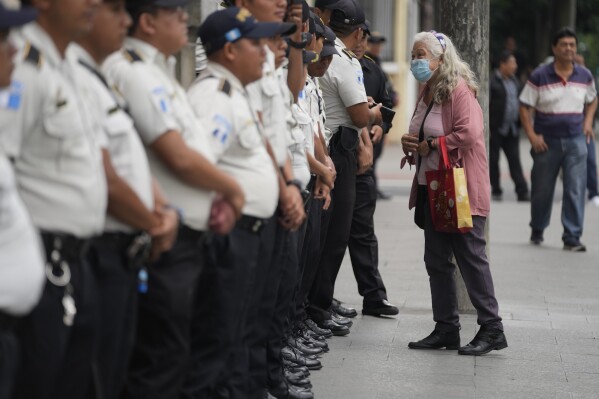
BY SONIA PÉREZ D.
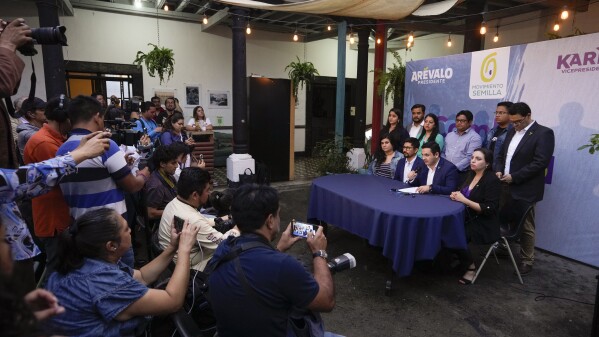
Seed Movement party lawmakers give a press conference in Guatemala City, Wednesday, Aug. 30, 2023. Guatemala’s Congress has refused to recognize the lawmakers from the party of President-elect Bernardo Arévalo, following the suspension of his party earlier this week.
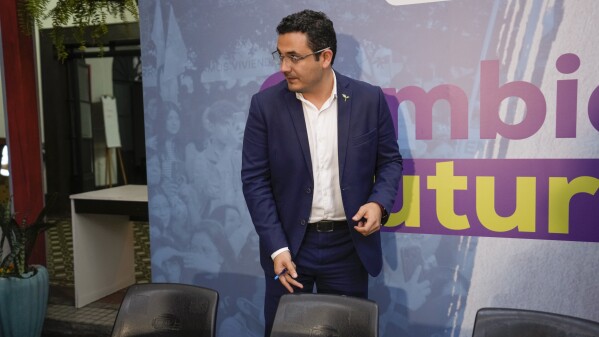
Seed Movement party lawmaker and leader Samuel Perez, arrives at a press conference in Guatemala City, Wednesday, Aug. 30, 2023. Guatemala’s Congress has refused to recognize the lawmakers from the party of President-elect Bernardo Arévalo, following the suspension of his party earlier this week.
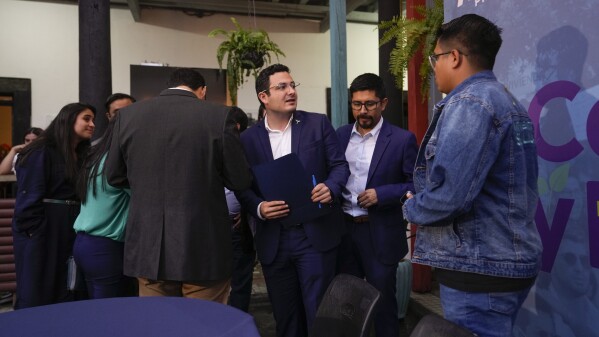
Seed Movement party lawmaker and leader Samuel Perez, center, arrives at a press conference in Guatemala City, Wednesday, Aug. 30, 2023. Guatemala’s Congress has refused to recognize the lawmakers from the party of President-elect Bernardo Arévalo, following the suspension of his party earlier this week.
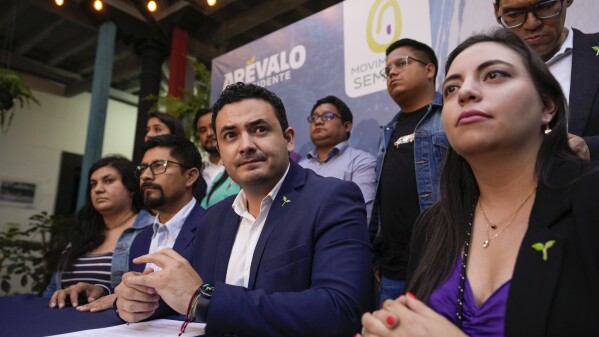
Seed Movement party lawmakers give a press conference in Guatemala City, Wednesday, Aug. 30, 2023. Guatemala’s Congress has refused to recognize the lawmakers from the party of President-elect Bernardo Arévalo, following the suspension of his party earlier this week.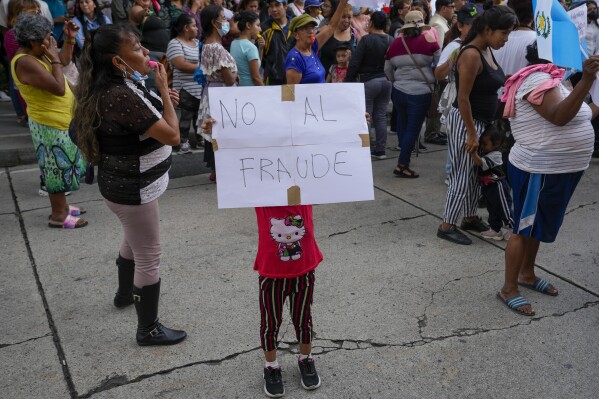
A child holds a poster with a message that reads in Spanish: “No to fraud,” during a protest alleging electoral fraud in the runoff presidential election, in front of the Supreme Electoral Tribunal building, in Guatemala City, Wednesday, Aug. 30, 2023.
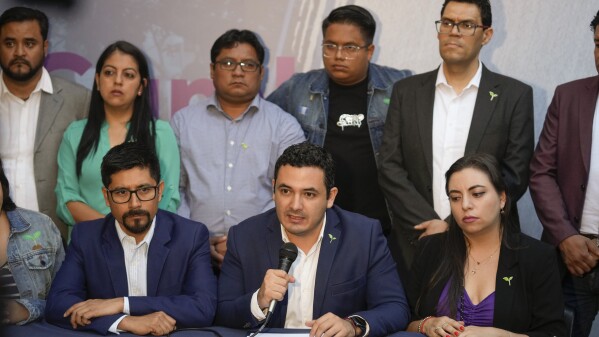
Seed Movement party lawmakers give a press conference in Guatemala City, Wednesday, Aug. 30, 2023. Guatemala’s Congress has refused to recognize the lawmakers from the party of President-elect Bernardo Arévalo, following the suspension of his party earlier this week.
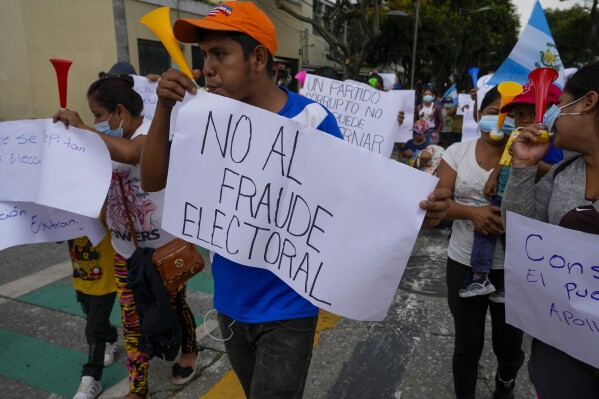
A protester blows on noise maker holding a poster with a message that reads in Spanish: “No to electoral fraud,” during a protest alleging fraud in the runoff presidential election, in front of the Supreme Electoral Tribunal building, in Guatemala City, Wednesday, Aug. 30, 2023.
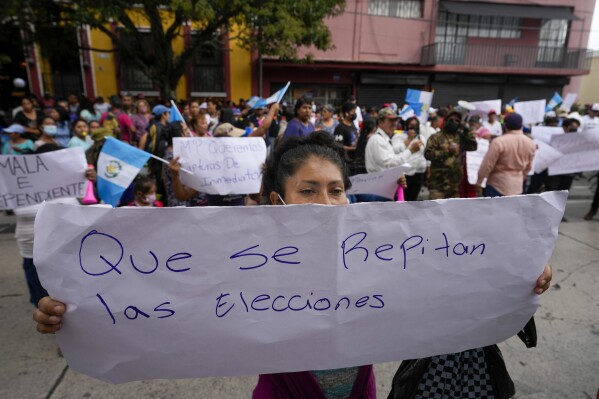
A protester holds a poster asking for a do over during a protest alleging electoral fraud in the runoff presidential election, in front of the Supreme Electoral Tribunal building, in Guatemala City, Wednesday, Aug. 30, 2023.
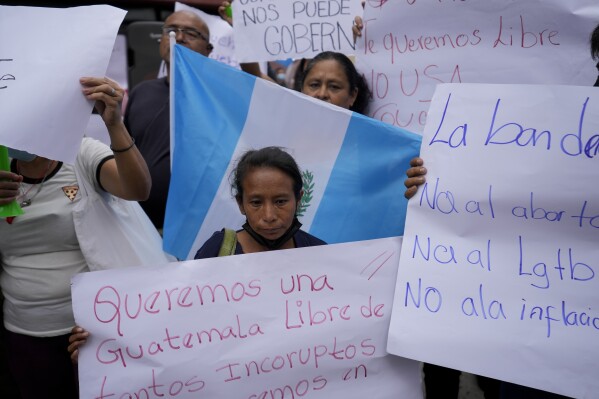
Protesters alleging electoral fraud in the runoff presidential election gather in front of the Supreme Electoral Tribunal building, in Guatemala City, Wednesday, Aug. 30, 2023.
A woman stops to chat with police guarding the perimeter of the Supreme Electoral Tribunal building, in Guatemala City, Wednesday, Aug. 30, 2023. Progressive candidate Bernardo Arévalo was confirmed the winner of the presidential runoff election by the country’s Supreme Electoral Tribunal on Monday, but the same day another government body ordered his political party suspended.
BY SONIA PÉREZ D.
August 30, 2023
GUATEMALA CITY (AP) — Guatemala’s Congress, which is controlled by the currently governing party, on Wednesday refused to recognize the seven lawmakers from the Seed Movement party of President-elect Bernardo Arévalo, following the suspension of his party earlier this week.
Lawmakers declared their Seed Movement colleagues independents in the latest move against the party since Arévalo’s landslide win Aug. 20. Prosecutors have accused the Seed Movement of wrongdoing in gathering signatures for the party’s registration years earlier. The case was announced in July after Arévalo won a surprise place in the presidential runoff against former first lady Sandra Torres.
Anti-corruption prosecutor Rafael Curruchiche officially advised the Congress of the party’s suspension despite pending court appeals. The U.S. government has sanctioned Curruchiche for allegedly obstructing corruption investigations.
Wednesday was the Congress’ first session after a two-month recess. Arévalo is among the seven lawmakers declared independents and he was present at the session Wednesday.
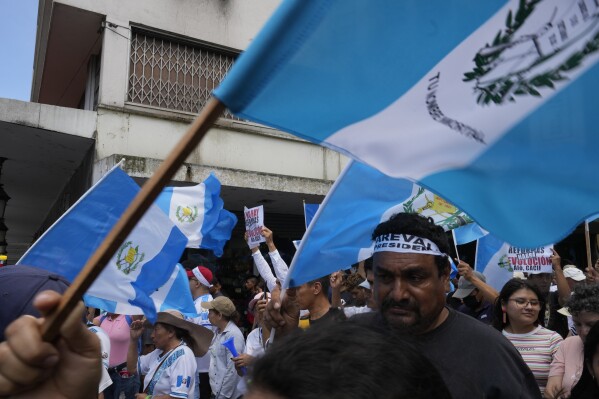
Guatemala’s electoral authority blocks the suspension of President-elect Arévalo’s political party
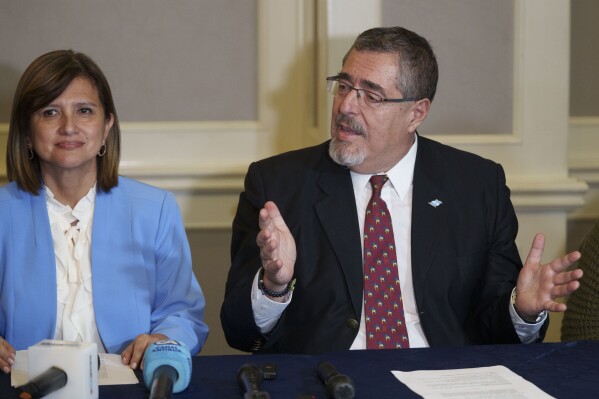
Guatemala’s president-elect faces legal challenges that seek to weaken him. Here’s what’s happening
At a news conference later, the Seed Movement said it was the victim of a government conspiracy and would seek an injunction blocking Congress’ move. It said it would also file a complaint with the legislature’s leaders.
“In recent days we have witnessed the systematic articulation of actions aimed at the disappearance of the Seed Movement, at the same time cancelling the support of the Guatemalan people at the ballot box who expressed an emphatic ‘no’ to corruption,” said party lawmaker Samuel Pérez.
Seed Movement legislator Román Castellanos said the impact is that Seed Movement lawmakers cannot hold leadership positions in the Congress. They also lose the presidency of the sole congressional committee they held, he said.
The body acted differently in the case of another party, the National Change Union, months earlier when its party status was cancelled by the Supreme Electoral Tribunal. The party allied with the governing party of President Alejandro Giammattei did not have its lawmakers declared independents or stripped of their committee leadership positions.
Arévalo’s win is worrying to entrenched powers because he has promised to re-start the campaign against corruption.
GUATEMALA CITY (AP) — Guatemala’s Congress, which is controlled by the currently governing party, on Wednesday refused to recognize the seven lawmakers from the Seed Movement party of President-elect Bernardo Arévalo, following the suspension of his party earlier this week.
Lawmakers declared their Seed Movement colleagues independents in the latest move against the party since Arévalo’s landslide win Aug. 20. Prosecutors have accused the Seed Movement of wrongdoing in gathering signatures for the party’s registration years earlier. The case was announced in July after Arévalo won a surprise place in the presidential runoff against former first lady Sandra Torres.
Anti-corruption prosecutor Rafael Curruchiche officially advised the Congress of the party’s suspension despite pending court appeals. The U.S. government has sanctioned Curruchiche for allegedly obstructing corruption investigations.
Wednesday was the Congress’ first session after a two-month recess. Arévalo is among the seven lawmakers declared independents and he was present at the session Wednesday.
Guatemala’s electoral authority blocks the suspension of President-elect Arévalo’s political party
Guatemala’s president-elect faces legal challenges that seek to weaken him. Here’s what’s happening
At a news conference later, the Seed Movement said it was the victim of a government conspiracy and would seek an injunction blocking Congress’ move. It said it would also file a complaint with the legislature’s leaders.
“In recent days we have witnessed the systematic articulation of actions aimed at the disappearance of the Seed Movement, at the same time cancelling the support of the Guatemalan people at the ballot box who expressed an emphatic ‘no’ to corruption,” said party lawmaker Samuel Pérez.
Seed Movement legislator Román Castellanos said the impact is that Seed Movement lawmakers cannot hold leadership positions in the Congress. They also lose the presidency of the sole congressional committee they held, he said.
The body acted differently in the case of another party, the National Change Union, months earlier when its party status was cancelled by the Supreme Electoral Tribunal. The party allied with the governing party of President Alejandro Giammattei did not have its lawmakers declared independents or stripped of their committee leadership positions.
Arévalo’s win is worrying to entrenched powers because he has promised to re-start the campaign against corruption.
Seed Movement party lawmakers give a press conference in Guatemala City, Wednesday, Aug. 30, 2023. Guatemala’s Congress has refused to recognize the lawmakers from the party of President-elect Bernardo Arévalo, following the suspension of his party earlier this week.
Seed Movement party lawmaker and leader Samuel Perez, arrives at a press conference in Guatemala City, Wednesday, Aug. 30, 2023. Guatemala’s Congress has refused to recognize the lawmakers from the party of President-elect Bernardo Arévalo, following the suspension of his party earlier this week.
Seed Movement party lawmaker and leader Samuel Perez, center, arrives at a press conference in Guatemala City, Wednesday, Aug. 30, 2023. Guatemala’s Congress has refused to recognize the lawmakers from the party of President-elect Bernardo Arévalo, following the suspension of his party earlier this week.
Seed Movement party lawmakers give a press conference in Guatemala City, Wednesday, Aug. 30, 2023. Guatemala’s Congress has refused to recognize the lawmakers from the party of President-elect Bernardo Arévalo, following the suspension of his party earlier this week.
A child holds a poster with a message that reads in Spanish: “No to fraud,” during a protest alleging electoral fraud in the runoff presidential election, in front of the Supreme Electoral Tribunal building, in Guatemala City, Wednesday, Aug. 30, 2023.
Seed Movement party lawmakers give a press conference in Guatemala City, Wednesday, Aug. 30, 2023. Guatemala’s Congress has refused to recognize the lawmakers from the party of President-elect Bernardo Arévalo, following the suspension of his party earlier this week.
A protester blows on noise maker holding a poster with a message that reads in Spanish: “No to electoral fraud,” during a protest alleging fraud in the runoff presidential election, in front of the Supreme Electoral Tribunal building, in Guatemala City, Wednesday, Aug. 30, 2023.
A protester holds a poster asking for a do over during a protest alleging electoral fraud in the runoff presidential election, in front of the Supreme Electoral Tribunal building, in Guatemala City, Wednesday, Aug. 30, 2023.
Protesters alleging electoral fraud in the runoff presidential election gather in front of the Supreme Electoral Tribunal building, in Guatemala City, Wednesday, Aug. 30, 2023.
Guatemalan president calls for transition of power to anti-corruption crusader Arévalo
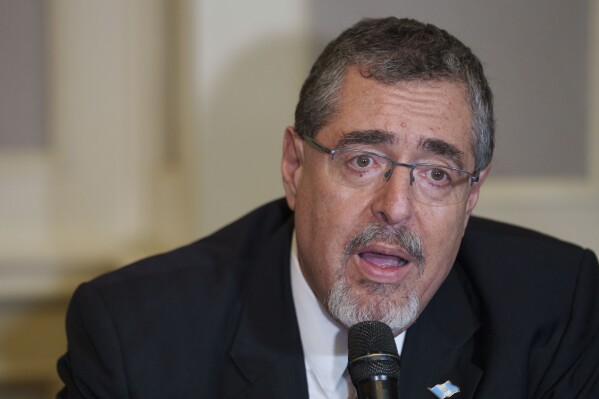
President-elect Bernardo Arevalo gives a press conference in Guatemala City, Monday, Aug. 28, 2023. The Central American country’s top electoral tribunal declared Arevalo the winner of the presidential election just hours after another part of the government suspended his Seed Movement party.

President-elect Bernardo Arevalo, right, and his Vice President Karin Herrera give a press conference in Guatemala City, Monday, Aug. 28, 2023.
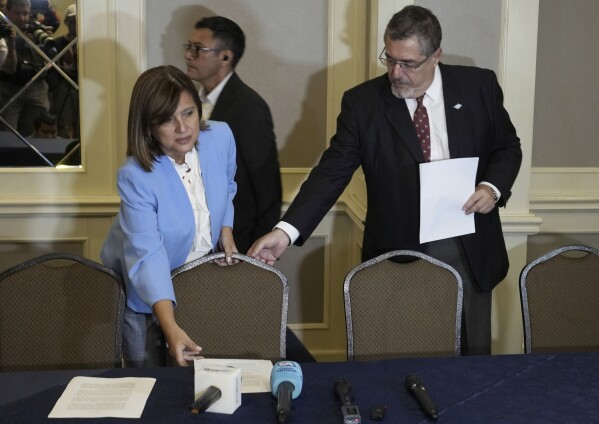
President-Elect Bernardo Arevalo, right, and his Vice President Karin Herrera arrive for a press conference in Guatemala City, Monday, Aug. 28, 2023.
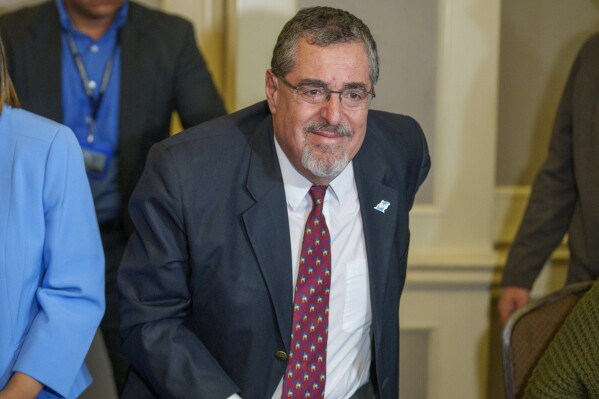
President-elect Bernardo Arevalo gives a press conference in Guatemala City, Monday, Aug. 28, 2023.
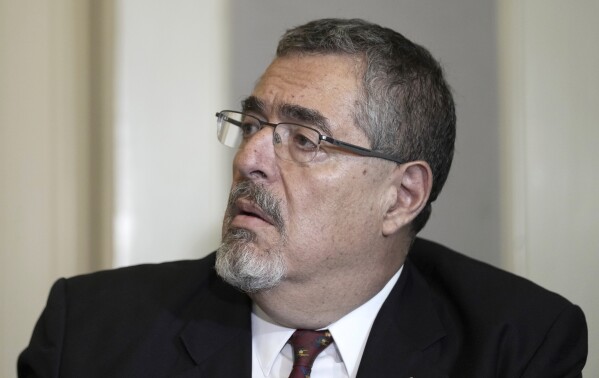
President-Elect Bernardo Arevalo listens to a question during a press conference in Guatemala City, Monday, Aug. 28, 2023.
President-elect Bernardo Arevalo gives a press conference in Guatemala City, Monday, Aug. 28, 2023. The Central American country’s top electoral tribunal declared Arevalo the winner of the presidential election just hours after another part of the government suspended his Seed Movement party.
BY SONIA PÉREZ D. AND MEGAN JANETSKY
August 29, 2023
GUATEMALA CITY (AP) — Guatemalan President Alejandro Giammattei called Tuesday for a democratic transition of power to anti-corruption campaigner and president-elect Bernardo Arévalo and his Seed Movement party, which have faced waves of legal attacks in attempts to block his rise to power.
The president’s statement came after a night of political chaos in the Central American nation following one of its most tumultuous elections in recent history.
Hours before the country’s Supreme Electoral Tribunal certified late Monday that Arévalo won this month’s presidential election, another government body — the electoral registry — suspended his party from all political activities. The Seed Movement asked the country’s top electoral authority to lift the suspension.
Arévalo called the suspension illegal at a news conference Monday and said that now the vote has been certified “no one can impede me from taking office on Jan. 14.” Arévalo and his party, posing a threat to those keen on holding onto power, have faced a slew of legal challenges, allegations of irregularities and assassination plots, according to international observers.
U.S. Secretary of State Antony Blinken on Tuesday congratulated Arévalo on his election as the next president of Guatemala, saying in a statement that the United States remains “concerned with continued actions by those who seek to undermine Guatemala’s democracy.”
“We stand with our partners in the international community and with the Guatemalan people against these unacceptable efforts, including the use of prosecutorial powers against those who seek transparency and accountability,” the statement said.
Arévalo already appeared certain to take office as president in January, after easily beating conservative former first lady Sandra Torres in that runoff. He got 60.9% of the votes, while she had 37.2%.
In a brief message to Guatemalans on Tuesday, Giammattei said he was satisfied for having put all the resources into making the electoral process peaceful. Despite accusations of voter fraud by Torres, the president said there were no “significant” incidents in the voting process.
“Now the doors are open to an orderly, transparent and efficient government transition,” Giammattei said.
Still, the suspension throws into doubt whether Seed Movement lawmakers can take their 23 seats in Congress, and also underscores the uphill battle faced by Arévalo, who campaigned on a progressive and anti-corruption platform.
The Seed Movement requested that the suspension be nullified, basing its request on a June ruling by Guatemala’s constitutional court holding that no political force can be suspended during an electoral period. It will be up to the the Supreme Electoral Tribunal to rule on the party’s standing.
“We’re basically entering really unexplored legal terrain,” said Tiziano Breda, a Central America expert at Italy’s Instituto Affari Internazionali. “But Arévalo’s victory is very hard to overrule. I’m not sure they want to risk great international concern, a diplomatic crisis, or what it could imply socially, the unrest it could provoke.”
He said he expects Arévalo’s opponents to continue trying to hamstring other parts of his administration so as to make it as hard as possible for him to govern.
Torres had appeared to have a clear shot at the presidency earlier this year after various other competitors were eliminated from the race, sparking concerns among some critics about the country’s democracy.
In the first round of voting, the little-known Arévalo emerged from a crowded presidential field as a surprise presidential contender, winning the right to go into the runoff with Torres, who came to represent the country’s elite at a time that Guatemalans are hungry for change amid discontent over endemic corruption.
His win has been the source of a legal back-and-forth between various governmental entities and courts, some staffed with officials who have been sanctioned by the United States on charges of corruption.
Torres, who hasn’t conceded defeat, has alleged voter fraud. Raids by prosecutors on his party’s headquarters have caused concern in the international community and among Guatemalans. Earlier this week, the Organization of American States’ human rights commission asked that Guatemala provide protection for Arévalo after reports emerged of possible plots to kill him.
Following the election in August, thousands of people spontaneously took to the streets to celebrate his victory in the capital, Guatemala City. Amid attempts to invalidate the vote, smaller peaceful protests have cropped up in front of the Attorney General’s Office, with demonstrators waving blue and white Guatemalan flags to demand respect for the vote.
Breda said the existing establishment has tried hard to overturn the results. “Even if they don’t manage to, this will have an implication of hindering a transition to Arévalo’s presidency,” he said.
___
Janetsky reported from Mexico City.
Guatemala arrests former UN anti-corruption commission representative
August 28, 2023
GUATEMALA CITY (AP) — Guatemalan prosecutors on Monday arrested the former representative of a United Nations-backed anti-corruption commission that was expelled from the country several years ago.
The arrest of Claudia González is the latest chapter in the government’s systematic pursuit of those who worked with the U.N. anti-corruption mission, best known by its Spanish initials CICIG.
Interviewed outside the courthouse after her arrest, González said the charges were strange. She said she was charged with abuse of authority by a public servant, when in fact she was not a government employee when she served as legal representative of the CICIG.
González has most recently been acting as defense attorney for some of the dozens of former anti-corruption prosecutors and officials facing legal action from the current administration.
President Alejandro Giammattei’s administration has been accused by civil society organizations and foreign governments of systemically pursuing those who worked with the U.N. mission.
Some 30 judges, magistrates and prosecutors involved in the investigation or processing of those corruption cases have been forced to flee the country after facing legal action.
Perhaps the CICIG’s greatest achievement was the investigation and prosecution of President Otto Pérez Molina, who was forced to resign along with his Cabinet in 2015.
Over 12 years, the CICIG supported Guatemala’s Special Prosecutors Office Against Impunity in dismantling dozens of criminal networks while at the same time building its capacity to handle complex corruption cases.
Then President Jimmy Morales ended the CICIG mission in 2019 while he was under investigation.
The U.S. government has sharply criticized the weakening of anti-corruption efforts in Guatemala and last year cancelled the U.S. visa of current Guatemalan Attorney General Consuelo Porras, who had been pursuing former prosecutors who conducted corruption investigations.
August 29, 2023
GUATEMALA CITY (AP) — Guatemalan President Alejandro Giammattei called Tuesday for a democratic transition of power to anti-corruption campaigner and president-elect Bernardo Arévalo and his Seed Movement party, which have faced waves of legal attacks in attempts to block his rise to power.
The president’s statement came after a night of political chaos in the Central American nation following one of its most tumultuous elections in recent history.
Hours before the country’s Supreme Electoral Tribunal certified late Monday that Arévalo won this month’s presidential election, another government body — the electoral registry — suspended his party from all political activities. The Seed Movement asked the country’s top electoral authority to lift the suspension.
Arévalo called the suspension illegal at a news conference Monday and said that now the vote has been certified “no one can impede me from taking office on Jan. 14.” Arévalo and his party, posing a threat to those keen on holding onto power, have faced a slew of legal challenges, allegations of irregularities and assassination plots, according to international observers.
U.S. Secretary of State Antony Blinken on Tuesday congratulated Arévalo on his election as the next president of Guatemala, saying in a statement that the United States remains “concerned with continued actions by those who seek to undermine Guatemala’s democracy.”
“We stand with our partners in the international community and with the Guatemalan people against these unacceptable efforts, including the use of prosecutorial powers against those who seek transparency and accountability,” the statement said.
Arévalo already appeared certain to take office as president in January, after easily beating conservative former first lady Sandra Torres in that runoff. He got 60.9% of the votes, while she had 37.2%.
In a brief message to Guatemalans on Tuesday, Giammattei said he was satisfied for having put all the resources into making the electoral process peaceful. Despite accusations of voter fraud by Torres, the president said there were no “significant” incidents in the voting process.
“Now the doors are open to an orderly, transparent and efficient government transition,” Giammattei said.
Still, the suspension throws into doubt whether Seed Movement lawmakers can take their 23 seats in Congress, and also underscores the uphill battle faced by Arévalo, who campaigned on a progressive and anti-corruption platform.
The Seed Movement requested that the suspension be nullified, basing its request on a June ruling by Guatemala’s constitutional court holding that no political force can be suspended during an electoral period. It will be up to the the Supreme Electoral Tribunal to rule on the party’s standing.
“We’re basically entering really unexplored legal terrain,” said Tiziano Breda, a Central America expert at Italy’s Instituto Affari Internazionali. “But Arévalo’s victory is very hard to overrule. I’m not sure they want to risk great international concern, a diplomatic crisis, or what it could imply socially, the unrest it could provoke.”
He said he expects Arévalo’s opponents to continue trying to hamstring other parts of his administration so as to make it as hard as possible for him to govern.
Torres had appeared to have a clear shot at the presidency earlier this year after various other competitors were eliminated from the race, sparking concerns among some critics about the country’s democracy.
In the first round of voting, the little-known Arévalo emerged from a crowded presidential field as a surprise presidential contender, winning the right to go into the runoff with Torres, who came to represent the country’s elite at a time that Guatemalans are hungry for change amid discontent over endemic corruption.
His win has been the source of a legal back-and-forth between various governmental entities and courts, some staffed with officials who have been sanctioned by the United States on charges of corruption.
Torres, who hasn’t conceded defeat, has alleged voter fraud. Raids by prosecutors on his party’s headquarters have caused concern in the international community and among Guatemalans. Earlier this week, the Organization of American States’ human rights commission asked that Guatemala provide protection for Arévalo after reports emerged of possible plots to kill him.
Following the election in August, thousands of people spontaneously took to the streets to celebrate his victory in the capital, Guatemala City. Amid attempts to invalidate the vote, smaller peaceful protests have cropped up in front of the Attorney General’s Office, with demonstrators waving blue and white Guatemalan flags to demand respect for the vote.
Breda said the existing establishment has tried hard to overturn the results. “Even if they don’t manage to, this will have an implication of hindering a transition to Arévalo’s presidency,” he said.
___
Janetsky reported from Mexico City.
Guatemala arrests former UN anti-corruption commission representative
August 28, 2023
GUATEMALA CITY (AP) — Guatemalan prosecutors on Monday arrested the former representative of a United Nations-backed anti-corruption commission that was expelled from the country several years ago.
The arrest of Claudia González is the latest chapter in the government’s systematic pursuit of those who worked with the U.N. anti-corruption mission, best known by its Spanish initials CICIG.
Interviewed outside the courthouse after her arrest, González said the charges were strange. She said she was charged with abuse of authority by a public servant, when in fact she was not a government employee when she served as legal representative of the CICIG.
González has most recently been acting as defense attorney for some of the dozens of former anti-corruption prosecutors and officials facing legal action from the current administration.
President Alejandro Giammattei’s administration has been accused by civil society organizations and foreign governments of systemically pursuing those who worked with the U.N. mission.
Some 30 judges, magistrates and prosecutors involved in the investigation or processing of those corruption cases have been forced to flee the country after facing legal action.
Perhaps the CICIG’s greatest achievement was the investigation and prosecution of President Otto Pérez Molina, who was forced to resign along with his Cabinet in 2015.
Over 12 years, the CICIG supported Guatemala’s Special Prosecutors Office Against Impunity in dismantling dozens of criminal networks while at the same time building its capacity to handle complex corruption cases.
Then President Jimmy Morales ended the CICIG mission in 2019 while he was under investigation.
The U.S. government has sharply criticized the weakening of anti-corruption efforts in Guatemala and last year cancelled the U.S. visa of current Guatemalan Attorney General Consuelo Porras, who had been pursuing former prosecutors who conducted corruption investigations.
President-elect Bernardo Arevalo, right, and his Vice President Karin Herrera give a press conference in Guatemala City, Monday, Aug. 28, 2023.
President-Elect Bernardo Arevalo, right, and his Vice President Karin Herrera arrive for a press conference in Guatemala City, Monday, Aug. 28, 2023.
President-elect Bernardo Arevalo gives a press conference in Guatemala City, Monday, Aug. 28, 2023.
President-Elect Bernardo Arevalo listens to a question during a press conference in Guatemala City, Monday, Aug. 28, 2023.
AP Photos/Moisés Castillo
No comments:
Post a Comment